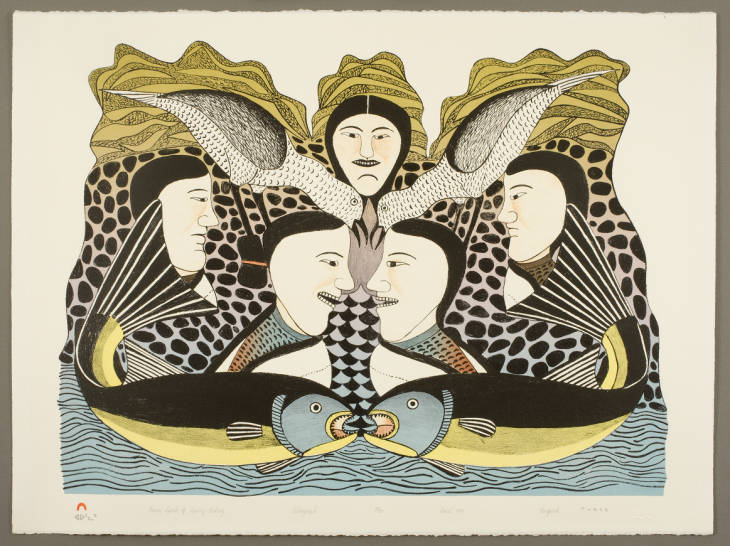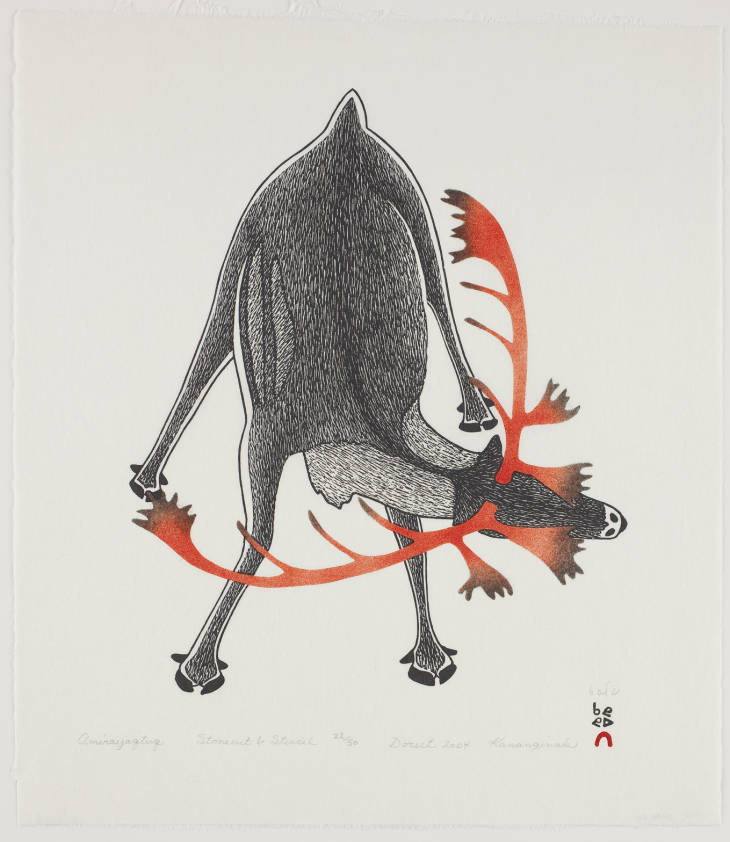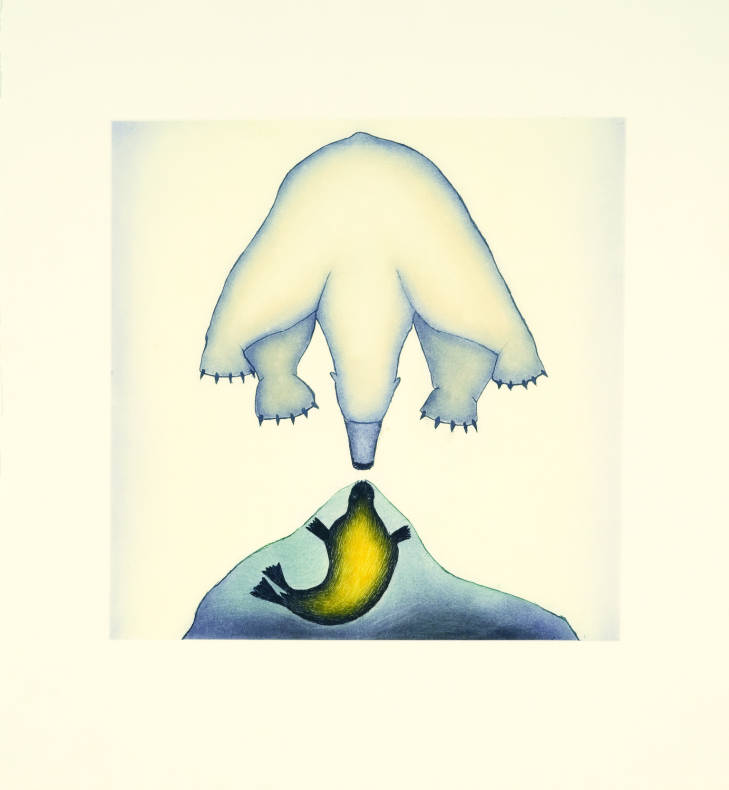Inuit prints and drawings primarily from the Kinngait Studios in Cape Dorset and the Uqqurmiut Arts Center in Pangnirtung, both on Canada’s Arctic Baffin Island, Nunavut.
Collection Overview
Inuit printmaking as we know it today dates back to 1957 when James Houston, a young European-Canadian, helped to create a cooperative graphic arts workshop in Cape Dorset, located in the northeast Canadian Arctic and part of what is now the recently created territory of Nunavut. Cape Dorset artists are well known for stone carvings and stone-cut prints, as well as lithographs, stencil prints, and etchings. Kinngait Studios, the graphic arts arm of the West Baffin Eskimo Co-operative, releases an annual collection of limited edition prints that are made available every fall. The 50th anniversary collection was released in 2009. Other Inuit printmaking studios are located in Holman, Pangnirtung, and Baker Lake.
Inuit artists often depict the power and beauty of the natural world, as well as town and camp life, traditional Inuit stories and mythic creatures, and, more recently, influences from the south. Living in such a harsh environment, these artists pay close attention to and respect the forces of nature, but their work also illustrates at times a certain lyricism in the portrayal of humans and animals with their surroundings. Among the best-known Inuit artists are Pudlo Pudlat (1916-1992), Kenojuak Ashevak (born 1927), Kananginak Pootoogook (1935 - 2010), and Kavavaow Mannomee (born 1958). Pudlo was one of the first Inuit artists to explore nontraditional subject matter; a number of his prints feature airplanes and helicopters, and others show animals interacting in unexpected and sometimes humorous situations. Kenojuak’s prints often depict birds, such as loons, geese, owls, gulls, and ravens, woven fluidly together in elaborate designs and bright colors. Many of her prints depict human and animal transformation figures. Kenojuak has received several notable honors and awards from arts museums, universities and colleges, and the Canadian government. Kananginak is well known for his prints of hunting, fishing, and Arctic wildlife, such as caribou, polar bears, and seals. Younger artists such as Kavavaow are now expanding upon traditional themes in their work, with images depicting ATVs, television sets, and other commercial and material items from the south.


